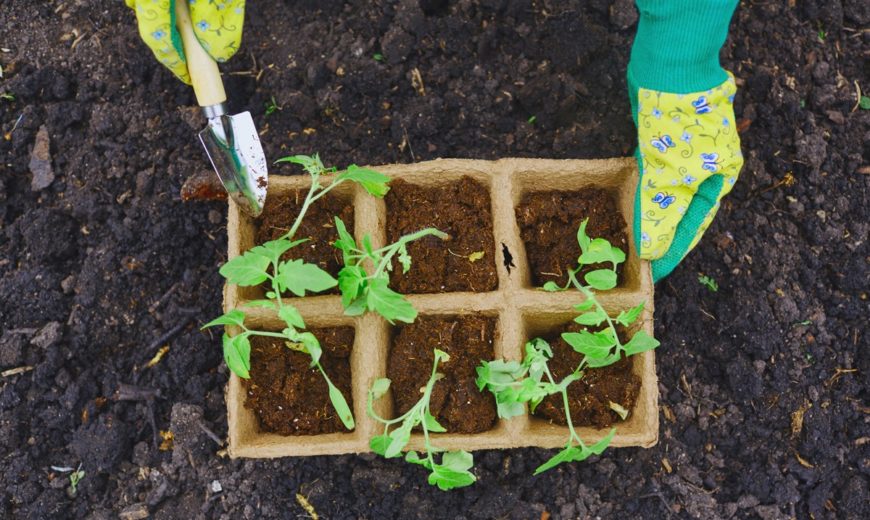
You love gardening, just like us! And also like us, when we first started growing, you too have likely been frustrated to see your vegetable and fruit plants die because of pests, disease, overwatering, too little watering, and a number of other reasons that you have no idea how to tackle. So frustrating!
Luckily, as an organic farmer with extensive experience in setting up and running organic farms (in Palestine), I can provide home gardeners in the Middle East with expert gardening tips and planting ideas to develop a thriving home garden! The secret sauce is in these 6 ingredients.
The 6 secrets to starting a vegetable garden
1. Soil (that’s healthy)
2. Sun (that’s plenty)
3. Seeds (good quality)
4. Sow in Season
5. Service with care (checking in often)
6. Savour!
1. Soil
Soil is the home of your plant. If you want your vegetables to thrive, make sure the soil is a nurturing environment. Whether you are sowing your seeds in a potting tray or directly in the field, the following ought to be the composition of the soil:
- Seed starting soil mix (where you plant seeds to grow into baby saplings that you then plant in the main field):
Roughly 50-50 mix of peat moss and perlite.
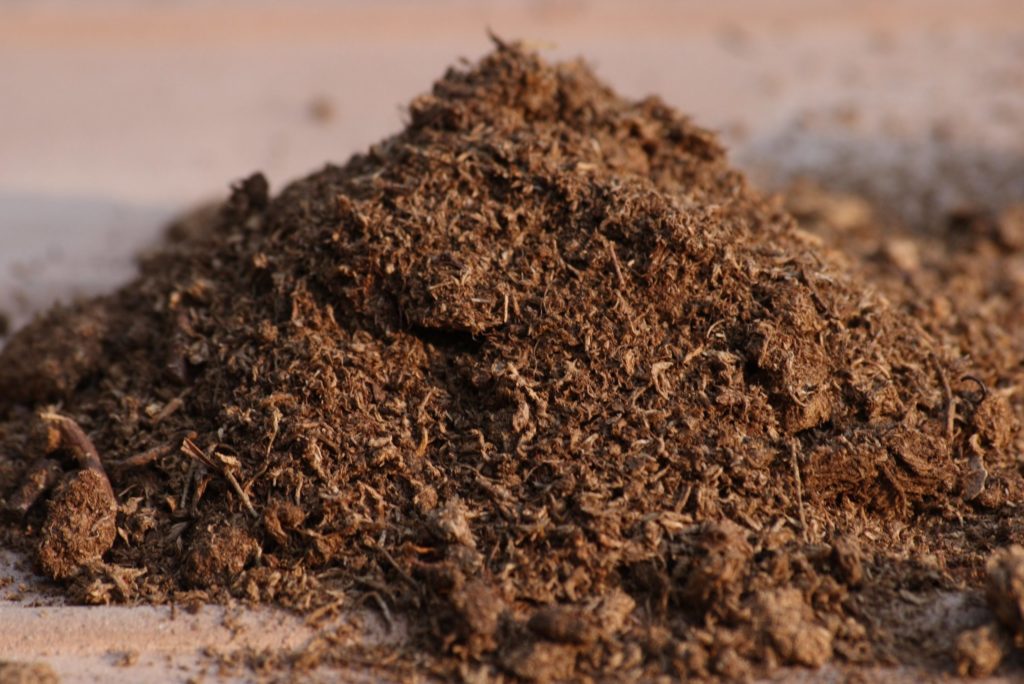
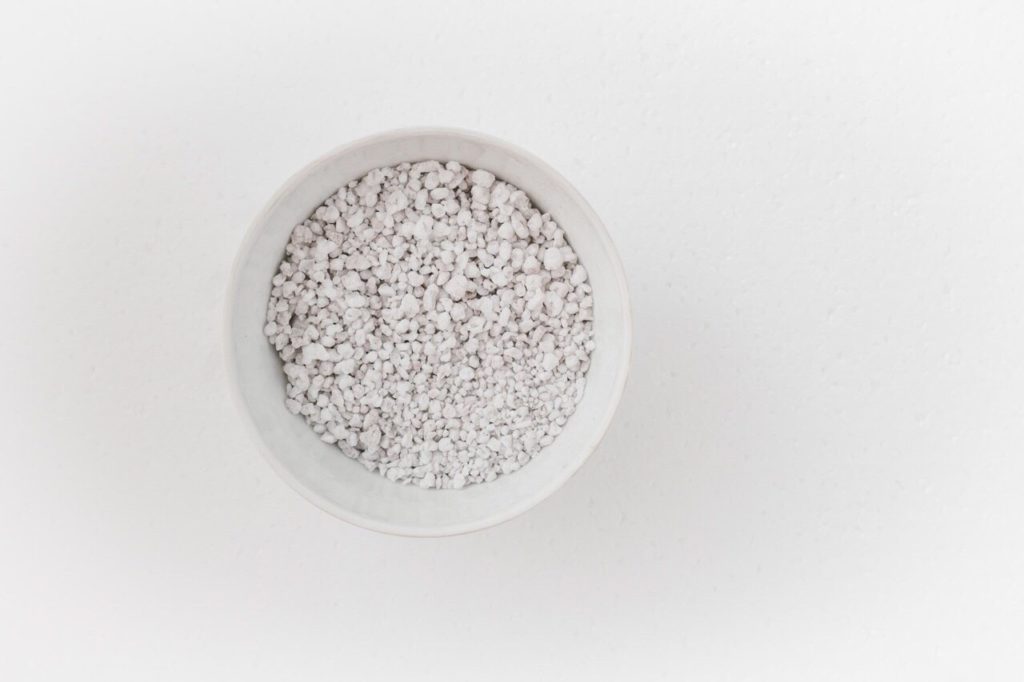
Soil in the main field:
a. Topsoil (60%)
b. Compost (30%)
c. Seed starting soil mix (10%) or aged manure (10%)
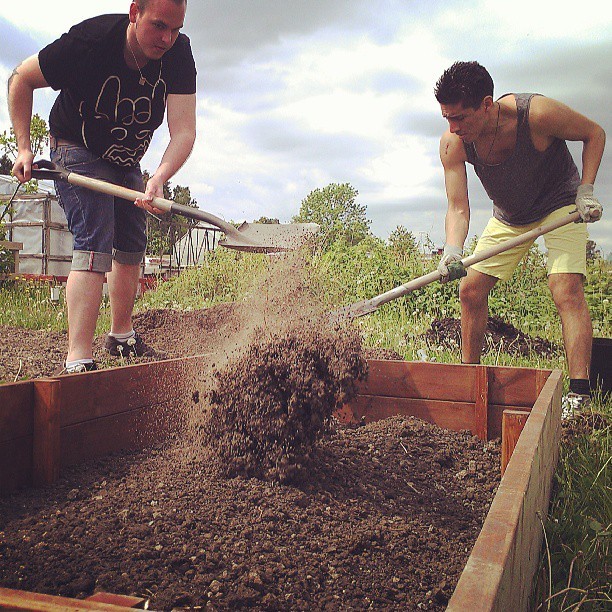
Planting outdoors can be in raised beds like this, or directly in the earth, or in containers
There’s a lot more one can add, but these are the essentials. You ought to find these in your garden stores. Buy organic, because it’s better for your health and better for the environment.
Plants are like people. To thrive, they need love and attention.
Nasser Tweet
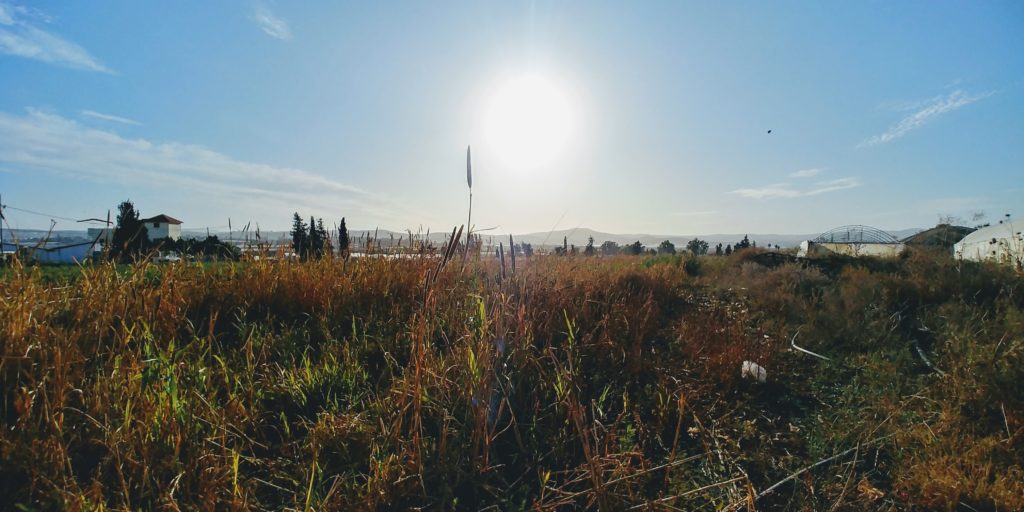
2. Sun
Your vegetables and fruit plants need direct sun, which is 6+ hours a day. Some plants, such as herbs, thrive in partial sun, between 4-6 hours a day.
When you plant your home garden, plan the location well.
Ensure that it receives the right amount of sun to grow. Don’t plant near walls or under trees, unless the sun requirements of those plants are minimal.
Lucky for us in the Middle East, there is no shortage of sun, and there’s plenty available for free!
3.Seeds
Planting a seed is one of the deepest acts of hope
Petra Page-Mann, Fruition Seeds Tweet
All seeds are alive and breathing. However, some are good to grow, and others not so much.
For gardening success, always order organic or untreated seeds from reputable sources. The following are excellent sources from Kuwait, and they probably ship to you:
Plantnmore, Organic Value
The following are international seed stores that may ship to you:
4. Sow in Season
Is gardening in Saudi Arabia the same as gardening in Egypt? Is gardening in the UAE the same as gardening in Jordan?
If you live in the Levant, grow cool crops in the months: September to March
If you live in the Gulf, grow cool crops in the months: November to February/March
The summer season in the Levant is: April to September
The summer season in the Gulf is: March to June (in July, August you can grow indoors) and September to October.
Depending on where you live, the temperature will either be more temperate (like the Levant) or more arid/desert (like the Gulf and the interior of North Africa) and so follow the guidelines above.
If you’re not sure what climate your area falls under (or you are a bit of a climate-nerd), check out the “World Map of Köppen−Geiger Climate Classification” and find analogous zones – are you more like the Levant or Gulf? And plant accordingly.
5. Service with Care
Plants are like people. To thrive, they need love and attention. In order to service with care, make sure you:
- Water adequately. Do the finger test – sticking both your index and middle finger in the ground spaced 5cm apart and see if the tips of your finger are wet. If your finger tips feel wet, then you do not need to water.
- Companion planting. Tomatoes grow well with basil, while the three sisters make great companions: consider growing squash with corn and beans. Onions and lettuce grow great together, and plant nasturtiums and borage near tomatoes and squash to keep pests away!
- Control pests by hand, with soap solutions and have these simple organic solutions on hand:
- Neem oil,
- Diatomaceous earth,
- Pyrethrin spray
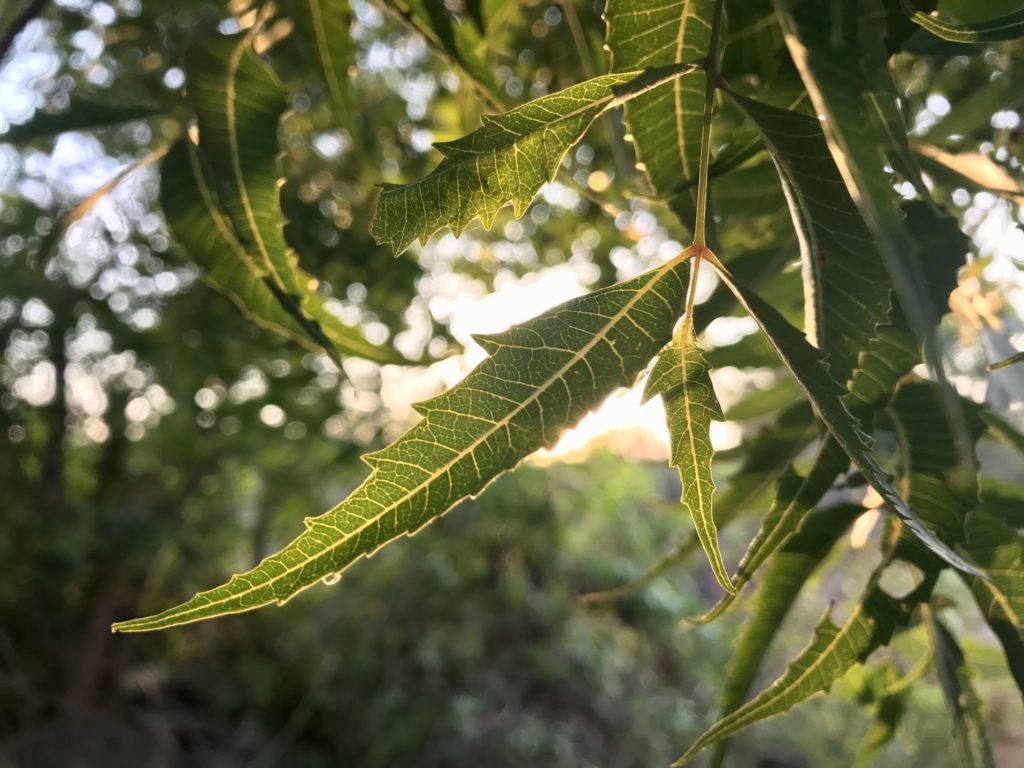
6. Savour
Don’t forget to harvest and then savour your produce. Do so regularly so the plants continue to produce!
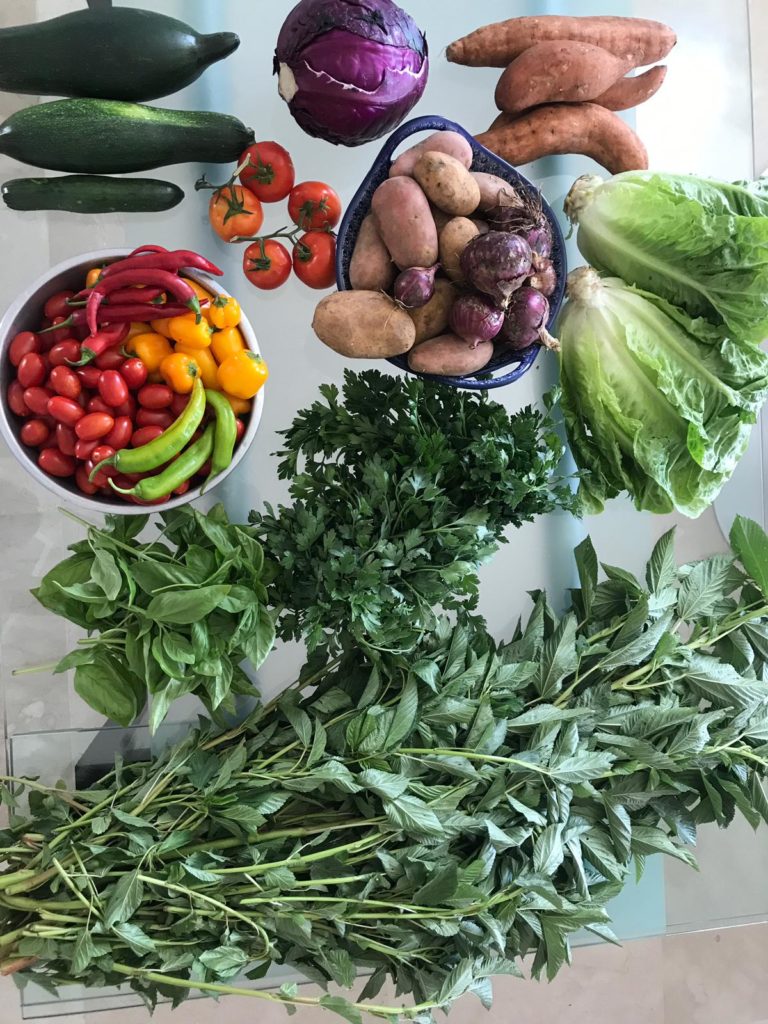
How to grow Arugula (jarjeer) in your home garden – SoWeGrow
April 26, 2020[…] Depending on where you live, the temperature will either be more temperate (like the Levant) or more arid/desert (like the Gulf and the interior of North Africa) and so follow the guidelines above. For more details, refer to our standard guide for growing vegetables in your home garden. […]
How to grow Mulukhiyah / Molokhia in your home garden - SoWeGrow
May 7, 2020[…] By the way, if you need more advice on how to start a garden, refer to our six secrets to starting a garden! […]
Rolando Mozo
May 17, 2020Inwould like to ask how to treat the soil here in ksa to grow vegies I want to learn on how to deal with the soil here
Nasser
May 19, 2020Hi Rolando, if you are using soil that is of a ‘sandy profile’ (as opposed to ‘clay’ or ‘loam’-like) you can amend the soil by incorporating aged manure into the soil and/or biochar. I explain the amounts to add in the following article on ‘Best Soil Preparation and Tips‘; see section ‘Improving Sandy Soil in the Middle East’. Good luck 👍
How to grow mint for free, forever! - SoWeGrow
May 19, 2020[…] For a list of reputable sources in Kuwait, the UAE, and in the US, check out our post on the six secrets to a thriving home garden, and also see Local Roots UAE.Alternatively, borrow an 8-10cm long cutting (a single mint […]
How to grow parsley in the heat of the summer - SoWeGrow
June 18, 2020[…] For a list of reputable sources for parsley in Kuwait, the UAE, and in the US, check out our post on the six secrets to a thriving home garden. […]
7 Biggest Gardening Mistakes when Growing Vegetables in the UAE - SoWeGrow
June 11, 2021[…] compiled a list of the mistakes that I have personally made when beginning as a gardener – and that many in our gardening community continue to struggle with. Why? To save you the […]